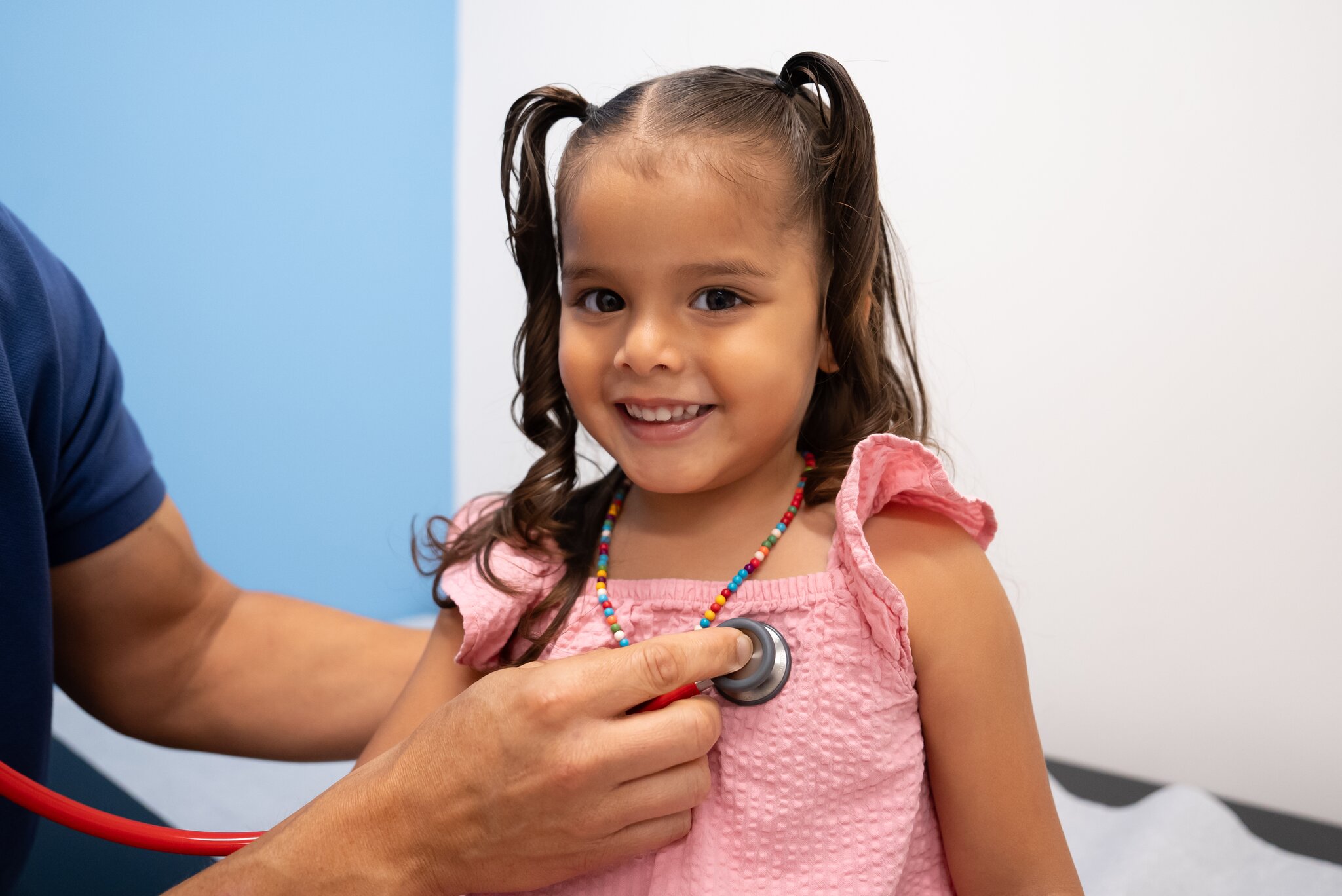Managing a child’s sleep, diet, emotions, illnesses, and more can be a lot on a parent, sending them into “panic mode.” There is no rulebook on how to best look after a kid’s health as a parent, so we’ve turned to local doctor Robert Snyder to give us some insights on what to look for at check-ups and in all moments in between.
As a parent and pediatrician for over 25 years, Snyder, Chief of Nemours Children’s Health, Primary Care Florida, said he empathizes with parents and their efforts to take care of their little ones the best way they can.
“We spend a lot of time kind of absorbing parents’ stress that’s part of our role, and allowing them to kind of get that out of their system, and then they’re often amenable to some kind of education or talking them through their concern,” Snyder said. “I think in pediatrics, and here certainly at Nemours Primary Care, having empathy is a critical piece of our pediatrics, and then you can help the kid to feel better, and you appreciate where the parents are coming from, and it just works.”
Snyder said he realized his love for working with children when he was 17 years old, working as a counselor at a summer camp. He said he enjoys how kids “don’t have any agenda” and “are who they are.”
Through his years of practice, Snyder said he has found creating connections and building trust with his patients and families is immensely valuable not only for him, but for parents as well. He said he prioritizes having conversations with parents on their perspective and creating a shared decision-making process to ensure he and the family have an understanding going into appointments.
“I think the key is to connect that personal relationship that you develop with your doctor or nurse practitioner, by having them get to know your child and get to know you over time,” Snyder said. “That is the bond that allows you to work through those challenging pieces of information that you’re trying to tease out. “
In preparation for checkups or doctor’s visits, Snyder suggests reading their little ones books on going to the doctor or showing them YouTube videos on what to expect to avoid any fear or uncertainty.
While he encourages using the resources available to answer health questions, he cautions parents against going down a hole on social media or on search engines when researching what may be affecting their child, as it can often be misleading.
“I think a lot of parents feel like they’re bothering us or taking up our time,” Snyder said. “That’s why we’re here. We’re here to see their kids. We’re here to reinforce that relationship, to help them to feel more comfortable.”
Snyder said parents should trust their gut about their child. If they see their kid is “thriving, happy, has a good appetite, is physically active and engaged, and feeling good about their day,” then they’re in a good spot. However, if there is uncertainty or things are not going as well, he suggests giving their doctor a call to see what to pay attention to when it comes to their child’s health.
As Snyder continues to work with Nemours, he said he looks forward to reinforcing principles he’s learned over his time working in pediatrics, such as being there for the families he looks after.
“I think what I’ve come to appreciate about pediatrics is when parents trust you with their child,” Snyder said. “You know, we love our kids, and so it’s a very, very tight bond. So by far the most satisfying component over the years for me in pediatrics is the long-term relationship that you develop with those families.”







Comments